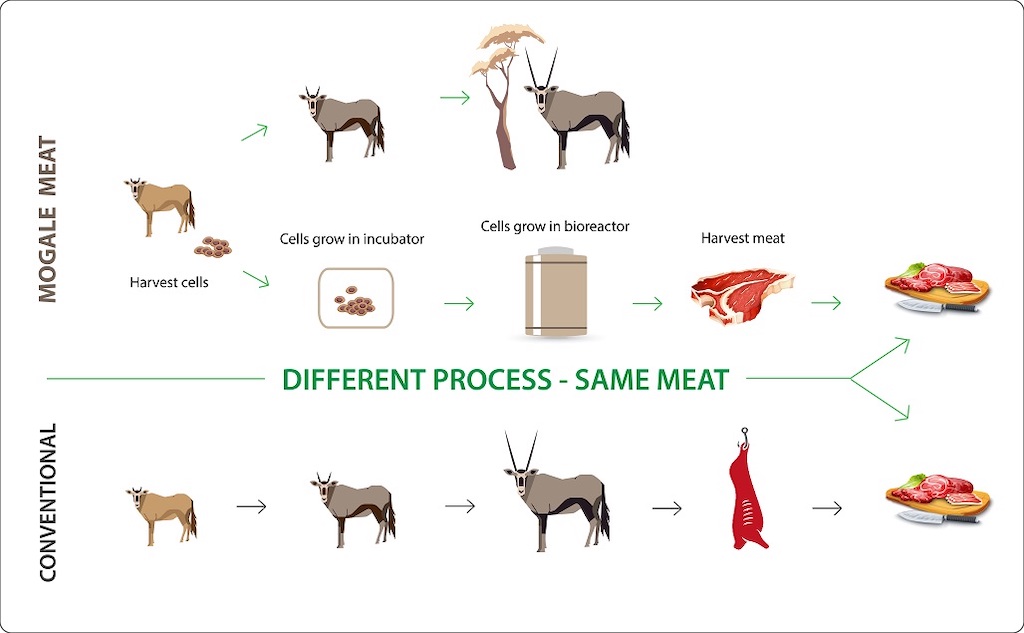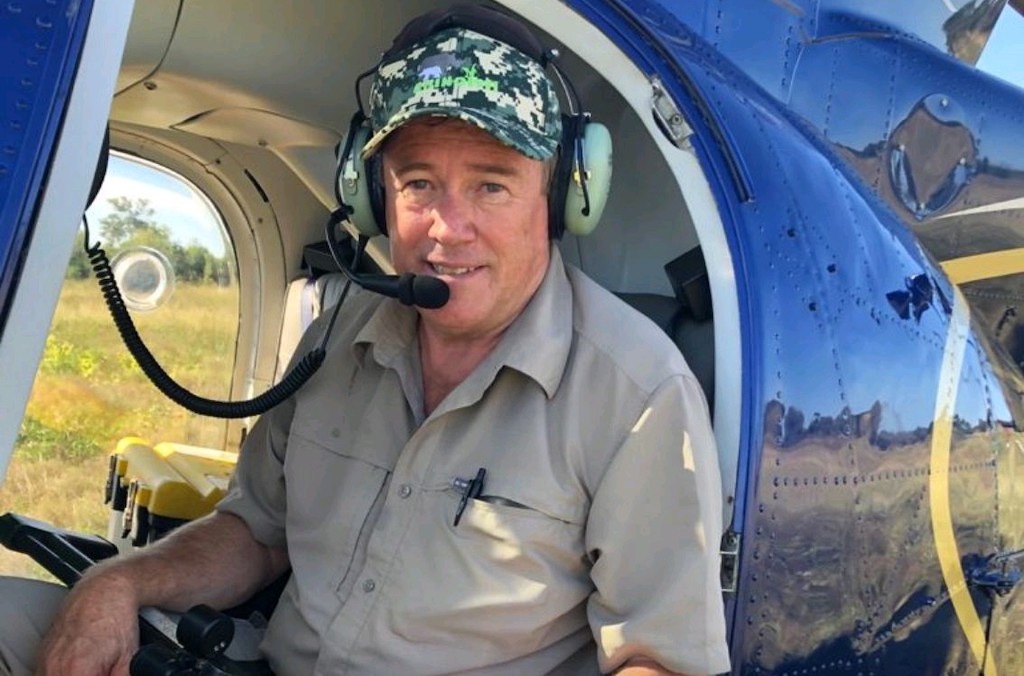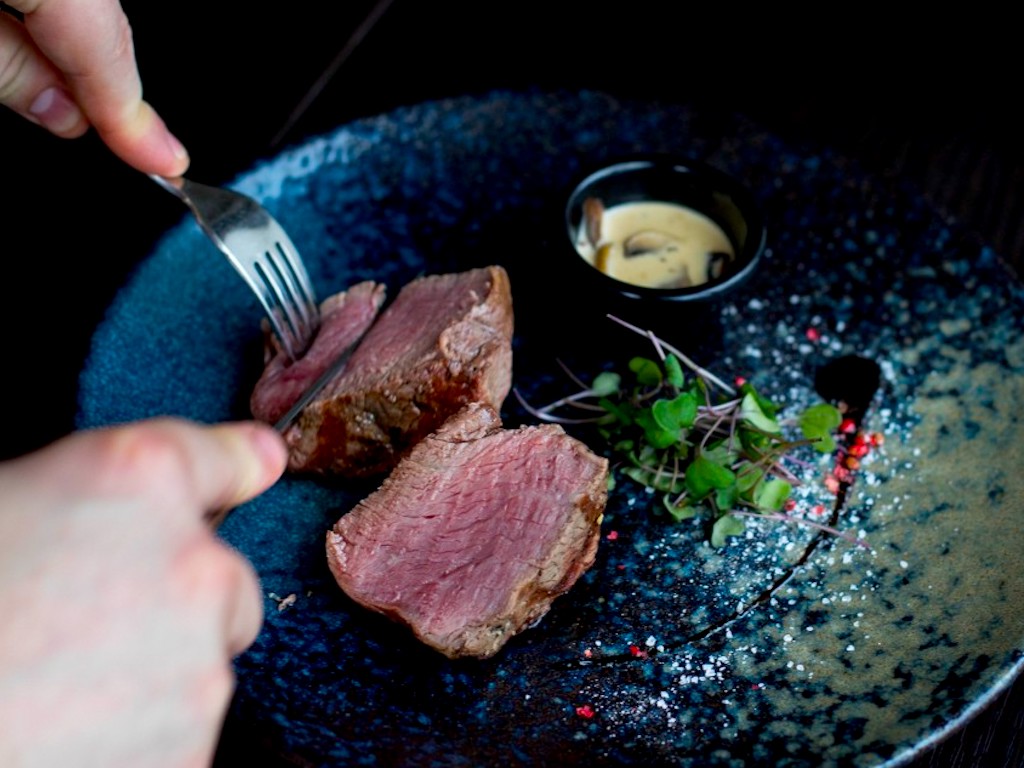4 Mins Read
Based in South Africa, Mogale Meat wants to make sustainable cultivated meat a reality in the country. The startup believes that with its BioBank of more than 500 cell samples from free-roaming antelope and cattle, it could not only make climate-friendly meat available to consumers, but help to solve the region’s ongoing malnutrition and food security problems.
Mogale Meat is on a mission to bring cell-based meat to South Africa, which it believes could solve multiple problems, from sustainability to health and food security. On the environmental front, growing meat directly from cells reduces the need to raise livestock, a carbon-intensive process that uses up huge amounts of land and other resources. In terms of health, a significant portion of South Africa’s population is food insecure, with malnutrition and stunted growth still major challenges facing the country.
To make cell-based meat happen, the startup is now building a platform using its library of cell samples from free-roaming livestock and wild antelope native to the region.
Cultivated antelope

At the moment, Mogale’s proprietary BioBank contains more than 500 cryopreserved cell samples, all derived from wild antelope and free-roaming cattle. Led by founder and CEO Dr. Paul Bartels, who is a wildlife veterinarian and industry veteran in the biobanking and cell-culture sector, Mogale plans to build an entire platform using this BioBank, which could provide cell-based meat to South Africa and the wider continent’s growing population.
“Southern Africa is plagued by undernutrition, including stunting, wasting, underweight and micronutrient deficiencies. Meat, and more specifically cell-cultured meat, can provide some of the essential nutrient requirements,” Bartels told Food Ingredients First in a recent interview. “Cell culture meat derived from African antelope is a lean, healthier meat as compared to meat derived from livestock species.”
The food tech is already garnering the attention of global investors, with CULT Food Science, a Canadian investment platform focused on cell-based solutions, pouring capital into Mogale last month. The undisclosed amount of funding gave CULT a seat on Mogale’s board, and will be used to support the startup’s BioBank expansion.
Other backers of Mogale include Sustainable Food Ventures, the rolling fund focused on alt-proteins, after the startup made it as a finalist at the recent XPRIZE competition through its participation in MeatOurFuture, a collaboration with CryoWild BioBank, University of KwaZulu-Natal (UKZN) and Tshwane University of Technology (TUT). The group, based in Pretoria, developed a lean chicken breast analogue using cellular agriculture.
Related: How the vegan meat and alt-protein scene is heating up across the African continent
Preserving Africa’s wildlife heritage
Another reason why Mogale is focused on cultivating species of antelope is to preserve African wildlife heritage. While beef, poultry and pork are the main types of meat consumed globally, prompting most cell-based food techs to focus on these categories, game meats like antelope feature heavily on South African plates.
Kudu, for instance, an African antelope, is often referred to as the best-tasting game meat in the world and is served as a steak or cured biltong meat. Cultivating meat from antelope will also mean differentiating itself from other cell-based meats set to land on the market in the future.

At the moment, only cultured chicken has received approval from Singapore authorities to be sold on the market, developed by San Francisco food tech Eat Just. Only a handful of startups in the space are using cell lines from not-so-common species, among them Australia-based Vow, which is culturing kangaroo and other exotic meats, and California’s Orbillion Bio, which is developing premium heritage elk and lamb.
Within South Africa’s cell-based industry, there’s Mzansi Meat, currently focused on beef, and cultivated seafood startup Sea-Stematic.
“Our strategy is two-fold, namely to focus on the meat from antelope (venison), which is a lean and healthy nutritious meat,” says Dr. Bartels. “Secondly, the variety of antelope species will allow us to produce novel foods, differing in taste and texture.”
Lead image courtesy of PxHere.




